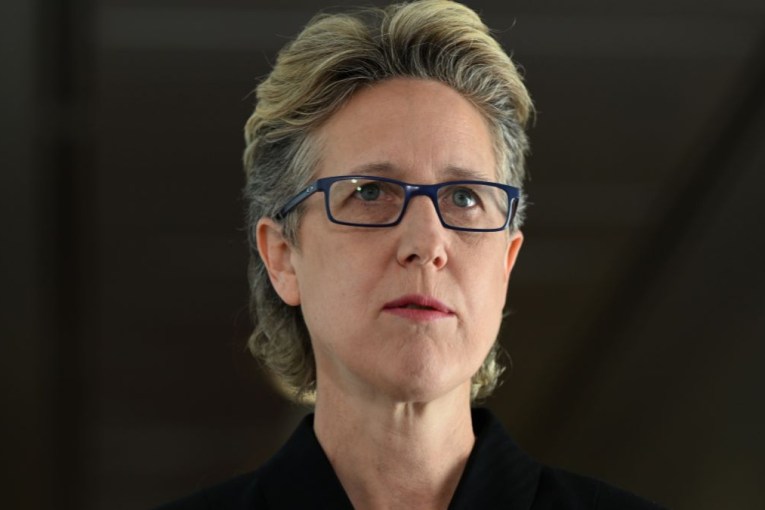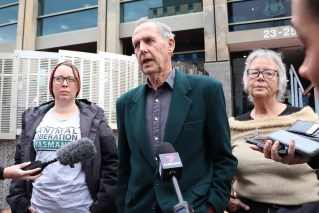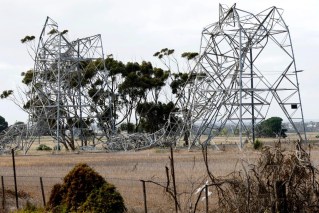English test for new citizens so hard some Aussies would fail: Human Rights Commission


Australia Day celebrations are traditionally held on January 26. Photo: AAP Photo: AAP
The Turnbull government’s proposed citizenship English test would require migrants to have a better command of the language than “many Australia-born citizens”, according to the Human Rights Commission.
The commission’s view is revealed in a public submission to the government on the changes, which Immigration Minister Peter Dutton has said will be introduced to Parliament this week.
Race Discrimination Commissioner Tim Soutphommasane cites analysis that warns 30,000 to 40,000 new migrants would struggle to meet the new requirement in their first decade living in Australia.
While prospective citizens previously demonstrated they had ‘basic’ English by sitting the general knowledge citizenship quiz, under the new laws, they would have to pass a standalone English test at the International English Language Testing System Band 6 standard.
“This proposed change would involve a significant increase on the current standard,” Dr Soutphommasane wrote.
“For example, undergraduate academic admission to many Australian universities requires minimum overall band scores of between 5.5 and 6.5.
“Many Australia-born citizens would not possess a written or spoken command of English equivalent to this standard.”

Prime Minister Malcolm Turnbull and Immigration Minister Peter Dutton unveiled the changes in April. Photo: AAP
Refugees would be the group most affected by the new English test, the submission argues.
The Immigration Department has refused to release the public feedback it has received on the changes, but the HRC’s commentary is one of several that has been posted online by submitters.
The commission calls on the government to scrap the English test proposal and instead strengthen existing English language support for migrants and humanitarian entrants.
The changes will also seek to strengthen the ‘Australian values’ component of citizenship, the government says, in a bid to weed out prospective citizens who hold extreme views on issues such as domestic violence.
Other new measures include requiring permanent residents to have lived in Australia for four years rather than 12 months before they can apply for citizenship, and for applicants to demonstrate they have integrated into Australian society.
It was also revealed on Monday that the changes will give the Immigration Minister the power to overturn citizenship decisions made by the Administrative Appeals Tribunal, which recently came under fire from government MPs.
“It’s not overruling any court, there’s still the ability to go to the Federal Court,” Mr Dutton told the Seven Network.
“This is really just trying to align the arrangement in terms of citizenship with the laws that exist in relation to granting and cancelling visas now.”
On Sunday, Mr Dutton said he had briefed Labor on the legislation ahead of its introduction to Parliament this week.
“It is a bill that suits the times we’re living in, and the government is very serious about making sure that people who pledge their allegiance to our country abide by our laws and our values,” he said.
Labor has yet to reveal its position on the changes, arguing it must wait to see the legislation.
But several Labor MPs have already spoken out against the proposal.
On Monday, Labor frontbencher Andrew Leigh said the opposition would go through its usual party processes before coming to a position, but appeared open to the English test.
“I don’t mind the idea that the typical new citizen should have to speak English better than (Deputy Prime Minister) Barnaby Joyce,” he told Sky News.
Greens Senator Nick McKim said the changes were xenophobic and unfair and he called on Labor to oppose the legislation.
“Time and again we have seen Peter Dutton grabbing more power for himself, as he tries to make himself judge, jury and jailor,” Senator McKim said.
“This a draconian measure aimed at undermining multicultural Australia.”
The Refugee Council and Federation of Ethnic Communities Councils also criticised the citizenship changes in their submissions to the government.








